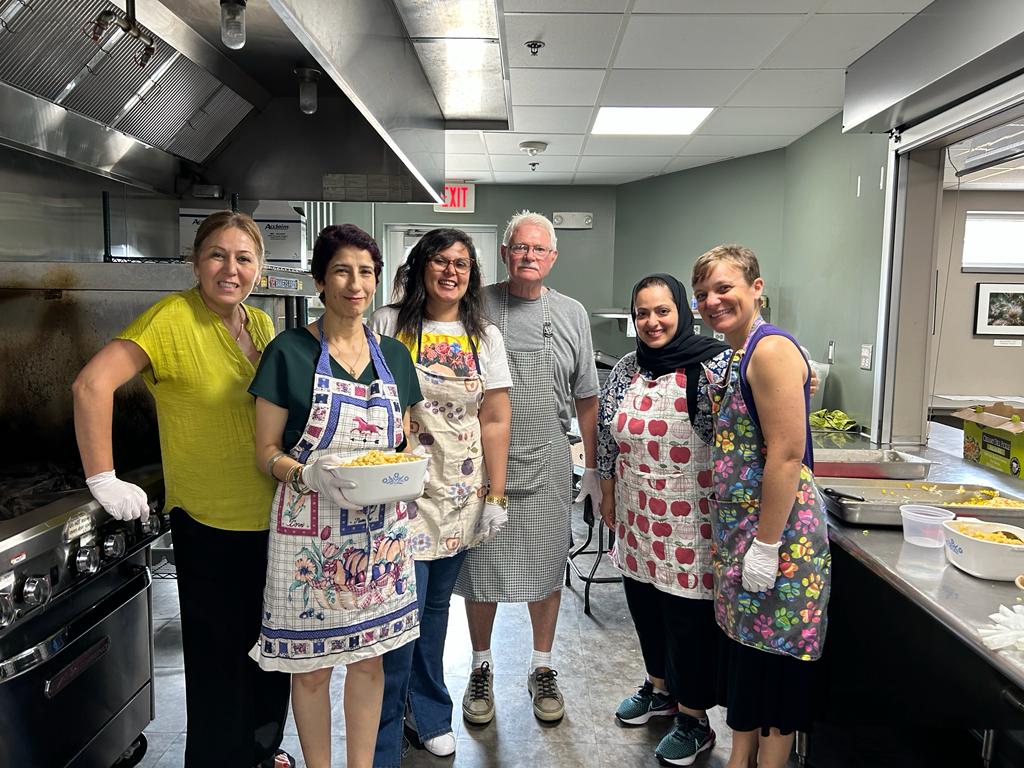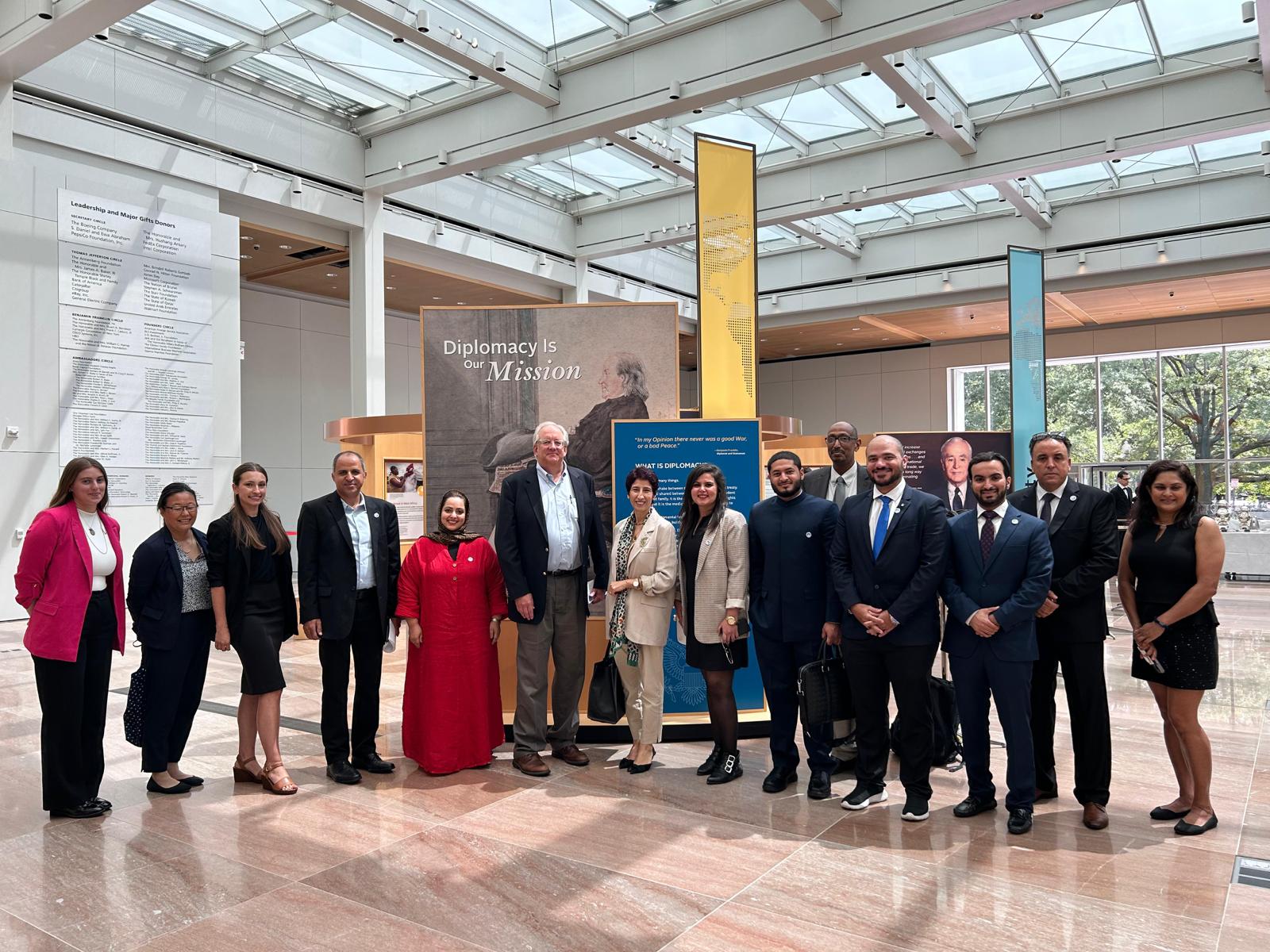Interfaith Dialogue and Religious Freedom: A Project for the Near East and North Africa
Freedom of religion is a cornerstone of American life that influences social and cultural structures across the nation. With such freedom yielding great religious diversity, exchange programs focusing on interfaith issues are productive forums to examine how different governmental, social, and religious entities support diverse religious communities. This July, Meridian welcomed a cohort of 8 visitors from across the Near East and North Africa (NEA) to the United States on an International Visitor Leadership Program to consider the origins of religious freedom, how religion impacts political life in the United States, and the role of religious leaders in building community and interfaith cooperation.

Beginning in Washington, DC, participants engaged with people and ideas that underscored the importance of the separation of church and state: a foundational idea that dictates religious and political life in America. Their next stop in Buffalo, NY yielded productive meetings with universities, including the University of Buffalo, which demonstrated how students of different faith traditions are supported on campus, including by their Diversity and Title IX Offices. Once in Iowa City, IA, participants were pleasantly surprised by their interactions with local Amish and Mennonite communities. As this was their first time interacting with members of these faith traditions, they appreciated understanding how such groups have preserved their cultures and have positive relationships with fellow Iowans. Lastly, rounding out the program was a stop in Jacksonville, FL where the important role of religious leaders in supporting interfaith dialogue was highlighted.
According to participants, engaging with American communities and faith leaders across the country yielded new perspectives and transformative notions of how religious tolerance can be implemented, and religious diversity celebrated, in their countries. Several post-program goals for these participants include:
- Creating a national museum to commemorate the lives of victims of religious persecution
- Using reconciliation tactics to improve relationships between Jewish and Muslim communities
- Producing academic literature about the role of exchanges in promoting global interfaith issues
- Sharing their accounts of American religious life and diversity with their networks and communities
In summarizing their perception change, one participation concluded that, "I have travelled a lot; however, this visit has had a positive impact on myself. It has changed the perception in my mind. As I understood the values and politics found in the U.S. – which is unique…I thought the U.S. culture was ‘Western culture.’ However, I learned it is impacted by the diversity of cultures…[Here] I became aware of inclusion.”

A special thanks to the Bureau of Education and Cultural Affairs (ECA) and Meridian's implementing partners, Global Ties Iowa, the International Institute of Buffalo, and GlobalJax for their support in creating this important exchange.
Project summary
| Interfaith Dialogue and Religious Freedom: A Project for the Near East and North Africa | |
|---|---|
| Number of Visitors: | 8 |
| Regions: | Near East and North Africa |
| Countries: | Bahrain, Egypt, Israel, Kuwait, Libya, Morocco, Oman, United Arab Emirates |
| Impact Areas: | Human and Civil Rights |
| Program Areas: | Global Leadership |